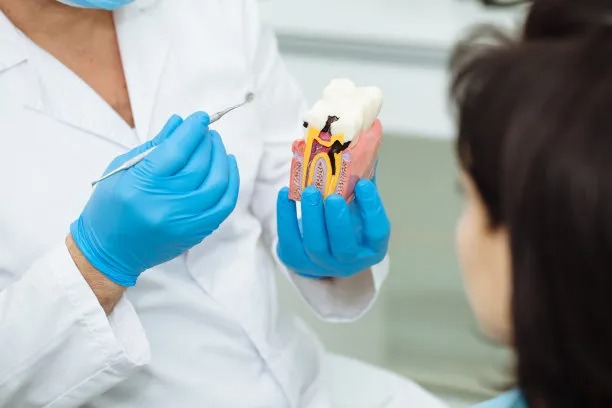Summary: This comprehensive guide explores the benefits of dental implant treatments and provides an in-depth overview of what patients can expect during the procedure. With a focus on long-term advantages, the detailed process, potential risks, and aftercare, this article serves as an informative resource for individuals considering dental implants. Understanding these key components not only helps in making informed decisions but also prepares patients for a smoother dental experience. Dive into this guide to demystify dental implants and their impactful role in restoring smiles and improving quality of life.
1. Significant Benefits of Dental Implants
Dental implants offer numerous benefits, starting with their ability to restore missing teeth effectively. Unlike dentures or bridges, implants function like natural teeth, which enhances one’s confidence in both aesthetics and function. This natural appearance makes them a preferred option for those who wish to maintain their smiles integrity.
Moreover, dental implants contribute to better oral health by preventing bone loss. When teeth are lost, the jawbone can begin to deteriorate over time. Implants provide the stimulation that encourages bone growth, aiding in the preservation of facial structure and the overall health of the mouth.
Additionally, dental implants can improve speech and comfort. Poorly fitted dentures can lead to slurred speech or discomfort while eating. Implants eliminate these issues, allowing patients to speak clearly and enjoy meals without worry, ultimately enhancing their quality of life.
2. The Consultation and Planning Process
The journey to receiving dental implants begins with an initial consultation. During this appointment, the dentist will evaluate the patient’s medical history, oral health, and the condition of the jawbone. This assessment is crucial for determining if the patient is a suitable candidate for the procedure.
After the evaluation, a treatment plan is created tailored to the individual’s needs. This plan outlines the number of implants required, the type of anesthesia, and the timeline for the overall process. Clear communication during this stage helps patients set their expectations regarding the length and complexity of treatment.
Imaging techniques such as X-rays or 3D scans are often employed to map out the jawbone structure. This detailed analysis aids in ensuring optimal implant placement for functionality and aesthetics, further minimizing risks during the actual procedure.
3. The Dental Implant Procedure Explained
The dental implant procedure typically occurs in multiple stages. First, the dentist will surgically place the implant into the jawbone. This initial surgery is usually performed under local anesthesia, and some patients may require sedation for added comfort.
After the placement, a healing period follows, which can last from several weeks to several months. During this time, the bone integrates with the implant—a process called osseointegration. This ensures stability and supports the implant in bearing load similar to a natural tooth.
Once the healing is complete, an abutment is attached to the implant, which will hold the crown in place. Lastly, a custom-made crown is designed to match the surrounding teeth, completing the process with optimal aesthetics and functionality.
4. Post-Procedure Care and Maintenance
After receiving dental implants, proper care is paramount for long-term success. Maintaining oral hygiene by brushing and flossing regularly is essential to prevent infections and support overall dental health. Patients are often provided with specific care instructions to follow during the recovery phase.
Regular follow-up appointments with the dentist are necessary to monitor the healing process and stability of the implants. These visits allow for early detection of any potential issues and ensure that the implants remain secure and functional.
Lastly, adopting a healthy lifestyle, including a balanced diet and quitting smoking, can significantly affect the longevity of the dental implants. A commitment to these practices will enhance the success rate of implants and contribute to overall well-being.
Summary:
In conclusion, dental implants represent a valuable solution for restoring missing teeth, providing numerous benefits that enhance oral health and quality of life. By understanding the thorough planning process, the detailed procedure, and the importance of post-operative care, patients can feel more confident and prepared for their dental implant journey.
This article is compiled by Vickong Dental and the content is for reference only.
Vickong Dental
Vickong Dental is a large medical group established in Hong Kong in 2008 by professors from well-known medical universities in Guangdong and Hong Kong, as well as medical doctors from key national '985' universities (including Master's supervisors and senior professors). The chain of branches brings together expert dentists with PhDs and Master's degrees from Hong Kong and Mainland China, committed to providing high-quality dental treatment.
"Vickong Dental Practices the University Motto of 'Healing and Serving Society,' with a Stable Operation for Sixteen Years. It Has Been honored with Hong Kong Enterprise Leaders's Choice,' and is a Global Trusted Implant Center for the Nobel Implant System. Recommended by Hong Kong Metro Broadcast and Guangdong Television, it Serves Customers from Over Thirty Countries and Regions, Gaining the Trust and Favor of Citizens from the Guangdong-Hong Kong-Macau Greater Bay Area and Surrounding Cities.

Thousands of customers' unanimous praise
The most recognized and highly recommended dental service by customers in the Guangdong-Hong Kong-Macau Greater Bay Area
We Ensure You Receive Detailed Care and Attention Here
Hong Kong standards, Shenzhen prices, Your Trusted English-speaking dentists

Vickong Dental Medical-Grade Instrument Disinfection Process
Vickong Dental Medical-Grade Instrument Disinfection Process

Vickong Dental Chain: A Warm and Comfortable Environment for Treatment






Appointment Hours

Q&A
Why choose Vickong Dental?
Vickong Dental practices the university motto 「Medicine to Benefit Society」, with each branch bringing together highly qualified dentists with doctoral and master’s degrees from Hong Kong and the Mainland, and has maintained seventeen years of steady operation。Recipient of 「2024 Hong Kong Enterprise Leaders Brand」, 「2025 Hong Kong Enterprise Leaders Brand」, a Nobel Biocare Global Trusted Implant Center, and a brand recommended by Metro Radio Hong Kong and Guangdong TV。
To date, we have served customers from more than thirty countries and regions,earning exceptionally high word-of-mouth recognition and trusted recommendations from residents across the Guangdong-Hong Kong-Macao Greater Bay Area and surrounding cities
We have eight major branches in Zhuhai、Shenzhen,and a consultation and service assurance center in Hong Kong,so you can book a free consultation at any time for any questions,which is very reassuring.
If I do not accept the quotation after the CT scan, will I be charged??
No! As long as the actual treatment has not started, you will not be charged any fees.
Will there be any additional charges during the treatment process?
No, there won’t be any additional charges. Before treatment begins, we will clearly explain the treatment plan and its corresponding fees. Only after the patient agrees and signs the consent form will we proceed with the dental service.
Can I pay in Hong Kong dollars?
Yes. Vickong Dental accepts payment in Hong Kong dollars. The amount will be converted based on the exchange rate of the day, and the applicable rate will be clearly communicated to you in advance.
Can I reschedule my appointment at any time?
Yes. Please contact us via **WeChat** or **WhatsApp** as early as possible, providing your original appointment time and details, along with your preferred new date and time slot for rescheduling.













